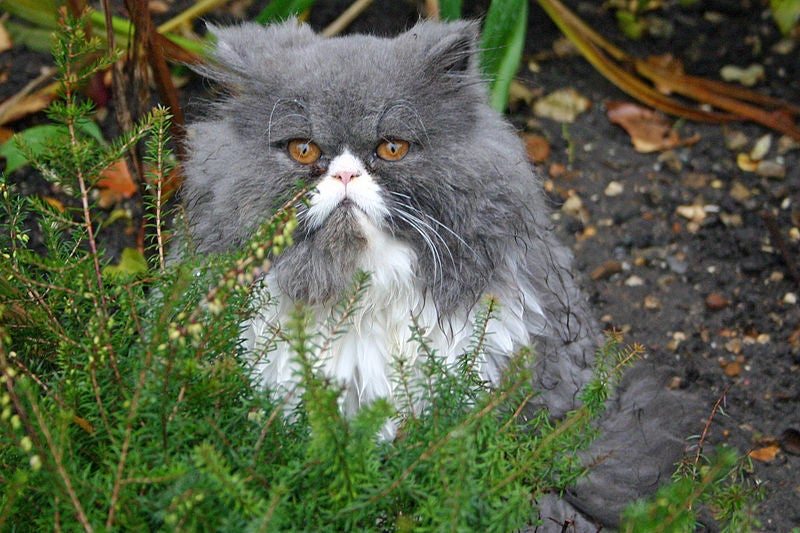Cat Bites Are Linked To Depression
The reason why is not fully clear. Maybe cats just dislike depressed people.

What’s the matter–cat bite your hand? After combing through the health records of 1.3 million people over 10 years, researchers found an unusual link between cat bites and depression. More than 41 percent of those who had presented to hospitals with cat bites were also treated for depression at some point. Furthermore, 86 percent of the people that had been both bitten and diagnosed with depression were women. If you are a woman who’s been bitten by a cat, there’s nearly a 50 percent chance that you will be diagnosed with depression at some point, the study suggests.
Puzzling findings, there. What’s going on? The researchers don’t know. But they do outline some guesses.
There’s possibility that people who are depressed are more likely to own cats to begin with (and thus are more likely to be bit than non-owners). As the rearchers write, in PLOS ONE:
There is substantial evidence to suggest that pet ownership results in multiple health benefits, both physical and mental. For example, pet ownership has been shown to reduce elevated blood pressure caused by mental stress even better than antihypertensive medications. Pets can also provide substantial social support. A study in Switzerland reported that among people living alone, cats could improve their mood. As such, it may be that depressed individuals, especially women, are more likely to own cats for companionship.
It’s also possible that depressed people act in a way that makes cats more likely to bite them:
Some animals may bite more in response to changes in their owners’ mental state or level of responsiveness. For example, depressed individuals often make less eye contact compared to those without depression. Some animals, such as dogs, horses, and pigs are known to respond to human social cues such as gestures, gaze, and focus. Even cats may respond to respond to pointing gestures and human gaze. One study reported that the type of activity being undertaken by a test subject had a large impact on a cat’s behavior.
But perhaps the “most intriguing” possibility is that cat owners are more likely to be infected with the parasite Toxoplasma gondii; studies hint that the protozoan, carried by cats and transmitted in their feces, can cause changes in the brains of the humans it infects:
Infections from the parasite have been associated with self-inflicted violence as well as increased suicide rates in women. It has also been suggested that the inflammatory cytokines released during a T. gondii infection in the brain may be the cause of depression in some patients.
It’s far from clear what explains the link. Regardless, the scientists wrote that it may make sense to screen cat-bite victims for depression, especially women.
In semi-related T. gondii news, the parasite has been found in beluga whales, which has serious implications for the Inuit who feed upon them.
And in semi-related cat-bite news, a new study found that cat bites are often more serious than previously thought–nearly a third of those who’d been bitten had to stay in the hospital for more than three days.